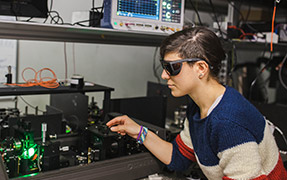Journal of Electronic Imaging to retract nearly 80 papers following investigation into peer review fraud
SPIE, the international society for optics and photonics, and IS&T, the Society for Imaging Science and Technology, which co-publish the Journal of Electronic Imaging (JEI), jointly announce the retraction of nearly 80 papers published in the journal due to compromised peer review. These papers were all originally published in special sections overseen by guest editors between 2021 and 2023. Twenty retractions will take place this week, and dozens are expected to follow in the coming months.
The publishers found evidence of large-scale manipulation of the peer review process, including fake reviewer accounts, repeating reviewers, and generic reviewer reports throughout different special sections. In addition, many out-of-scope papers were discovered to have been published in these special sections.
A committee of subject-matter experts and senior editorial leadership re-evaluated the papers published in these special sections and identified many instances of poorly formed experiments, out-of-date references, evidence of AI-generated language, and limited datasets. These problems, combined with a compromised peer review process, led to a recommendation to retract a large number of papers from JEI. All authors have been notified and given the opportunity to appeal, following standard practice. When the window for appeals has closed, the retractions will take place in accordance with the guidelines outlined by COPE, the Committee on Publication Ethics, and SPIE’s publication ethics policies.
The SPIE Publications Ethics Subcommittee and IS&T VP of Publications will review appeals and recommend appropriate sanctions for the guest editors deemed responsible for the misconduct.
SPIE and IS&T adhere to strict policies concerning publication ethics, and fraudulent publication activity will not be tolerated. The societies view these retractions as important corrections to the scientific literature, and regret any resulting negative impacts that these papers may have on the imaging research community.
“Integrity of peer review is fundamental to ensuring trust in scientific publications,” says Gaurav Sharma, VP of Publications for IS&T and former Editor-in-Chief of JEI. “The manipulation and subversion of the JEI peer review process by a handful of bad actors is deplorable, and we will not let them profit from their shameful actions. We will sanction the perpetrators and correct the scholarly record. We have also added new safeguards in our processes to thwart any future attempts at peer review manipulation.”
“SPIE does not tolerate publication fraud in any form, and honest, rigorous peer review is at the core of scientific integrity,” says Cather Simpson, Chair of the SPIE Publications Committee. “Once we discovered that the peer review process had been violated in JEI, we conducted an in-depth investigation to determine the extent of the fraud and identify impacted papers. We have made important changes to our processes to address the weaknesses that allowed this fraud to take place and introduced new features across the entire SPIE Journals portfolio that will prevent future such occurrences.”
These discoveries led to several important changes to peer review and related workflows, including additional screening of special section proposals and guest editors; improved special section management to allow greater transparency and oversight of the peer review process; and improved technical tracking and alerts for unusual reviewer behavior.
About IS&T
Founded in 1947, the Society for Imaging Science and Technology is an international not-for-profit organization dedicated to expanding knowledge and expertise through conferences, webinars, short courses, and publications, and leads efforts to set international imaging standards as Secretariate of ISO TC 42. IS&T encompasses all aspects of imaging, from input (vision, sensors) through processing to output (display, hardcopy), with particular emphasis on advanced imaging technologies; color science; cultural heritage digitization; digital printing; and associated applications. imaging.org.
About SPIE
SPIE, the international society for optics and photonics, brings engineers, scientists, students, and business professionals together to advance light-based science and technology. The Society, founded in 1955, connects and engages with our global constituency through industry-leading conferences and exhibitions; publications of conference proceedings, books, and journals in the SPIE Digital Library; and career-building opportunities.
Contact:
Patrick Franzen
Director, Publications and Platform
patrickf@spie.org
+1 360 685 5615



